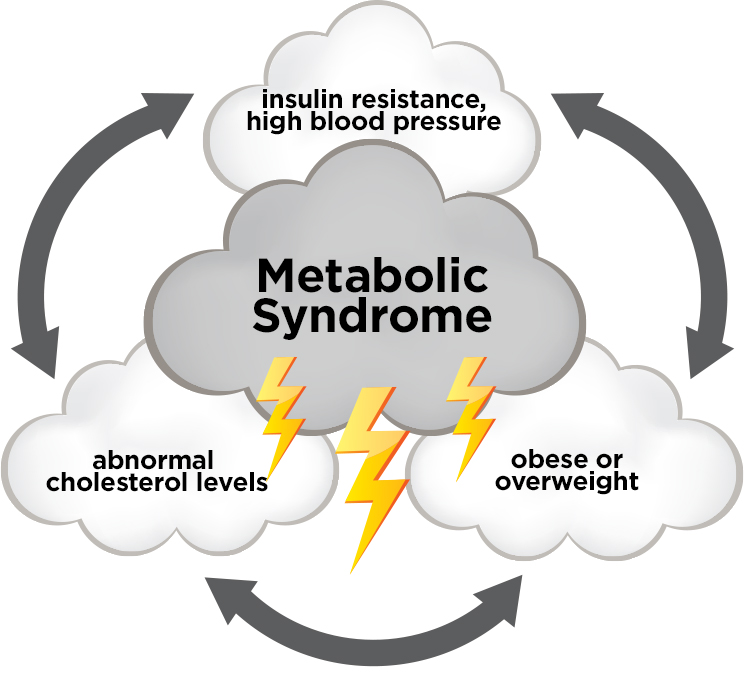Type 2 diabetes disease relationship with being overweight

Type 2 diabetes disease relationship with being overweight are not a good combination that needs professional touch immediately.
Type 2 diabetes disease relationship with being overweight: Dealing with obesity to offer solution
There are many risk factors for type 2 diabetes disease some of which may include age, race, pregnancy, stress, certain medications, genetics or family history, high cholesterol and obesity. However, the single best predictor of type 2 diabetes is overweight or obesity. Experts at AWAREmed Health and Wellness Resource Center under the leadership of doctor Dalal Akoury MD are estimating that up to 90% of people living with type 2 diabetes are overweight or have obesity. What that communicates is that people who are overweight or have obesity have added pressure on their body’s ability to use insulin to properly control blood sugar levels, and are therefore more likely to develop diabetes. One study has indicated that the number of diabetes cases among American adults increased by a third during the 1990s, and additional increases are expected. This rapid increase in the occurrence of diabetes is mostly attributed to the growing prevalence of obesity in the United States.
From an expert point of view, doctor Akoury agrees that type 2 diabetes can easily be prevented. And in fact studies have established that lifestyle changes and small amounts of weight loss in the range of 5-10% can prevent or delay the development of type 2 diabetes among high-risk adults. Lifestyle interventions including diet and moderate to intense physical activity (such as walking for 150 minutes per week) can be very effective in weight loss. Preventing weight gain, increasing activity levels and working toward small amounts of weight loss if you are overweight can have a big impact on the likelihood that you will develop diabetes in the future. Thus far, weight management is the best thing you can do to prevent the development of diabetes says doctor Akoury.
Working remedies if struggling with diabetes
According to doctor Akoury, there are several you can do to have a positive influence on your blood sugar and your overall health. You will need to make the right decisions by choosing foods wisely, exercising regularly, reducing your stress levels, making modest lifestyle changes and using medications to lower blood glucose levels. Type 1 diabetic patients must have insulin exogenously applied to maintain healthy blood glucose levels. Type 2 diabetic patients, however, can use insulin or drugs that sensitize their bodies to insulin, which work quite well in lowering blood glucose levels. Unfortunately, these drugs are not without risk as they, as well as the exogenous application of insulin, can often cause diabetic patients to suffer from low blood glucose levels (hypoglycemia) if taken improperly, which may result in seizures, unconsciousness, or death.
Small amounts of weight loss (losing 10 pounds or more) can decrease the amounts of these medications needed to keep your blood sugar levels within a healthy range by lowering your blood glucose levels, which furthermore reduces the risk of diabetic complications. Ultimately, better nutrition, increased physical activity, and control of blood glucose levels can delay the progression of diabetes and help prevent the complications associated with the disease.
Type 2 diabetes disease relationship with being overweight: Dealing with obesity to offer solution
http://www.integrativeaddictionconference.com/wp-admin



 Currently, regenerative medicine is on focus with hopes that it can be used in treatment of cardiovascular diseases. The circulating endothelial progenitor cells have been shown to possess an ability to form mature endothelial cells that can be useful in the process of vascular repair as well as neoangiogenesis. In preclinical studies, it has been shown that the circulating endothelial progenitor cells (EPCs) have the potency for cardiovascular regeneration. With this said, it is god to admit that there is still a lot needed to be done in this area to show the effectiveness of the regenerative activities of these EPCs. Here we look at how the EPCs relate to cardiovascular diseases.
Currently, regenerative medicine is on focus with hopes that it can be used in treatment of cardiovascular diseases. The circulating endothelial progenitor cells have been shown to possess an ability to form mature endothelial cells that can be useful in the process of vascular repair as well as neoangiogenesis. In preclinical studies, it has been shown that the circulating endothelial progenitor cells (EPCs) have the potency for cardiovascular regeneration. With this said, it is god to admit that there is still a lot needed to be done in this area to show the effectiveness of the regenerative activities of these EPCs. Here we look at how the EPCs relate to cardiovascular diseases.01516-9/assets/gr4.jpg) To show the relationship between heart failure and the number of circulating EPCs, Valgimigli M and his counterparts tested the level of EPCs in patients suffering from heart failure and they discovered that EPC mobilization occurred in heart failure and showed a biphasic response, with elevation in early stages while depression in the advanced stages. The increased EPCs was shown as a replication of a functional bone marrow response to diffuse and severe endothelial damage during the early stages of heart failure but an additional and significant increase of tumor necrosis factor (
To show the relationship between heart failure and the number of circulating EPCs, Valgimigli M and his counterparts tested the level of EPCs in patients suffering from heart failure and they discovered that EPC mobilization occurred in heart failure and showed a biphasic response, with elevation in early stages while depression in the advanced stages. The increased EPCs was shown as a replication of a functional bone marrow response to diffuse and severe endothelial damage during the early stages of heart failure but an additional and significant increase of tumor necrosis factor (










 Type 2 Diabetes Cure: Natural Treatments that will Prevent and Reverse Diabetes (Natural Health Books) (Volume 2)
Type 2 Diabetes Cure: Natural Treatments that will Prevent and Reverse Diabetes (Natural Health Books) (Volume 2)














